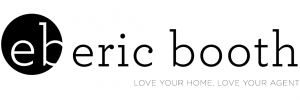Mortgages Explained!
If you’re thinking about buying a house or condo, you need to know what mortgages are. Without understanding how mortgages work, you’ll never how much you can afford to spend on your next home. Money-talk is never easy to follow. That’s why we’re breaking down mortgages in the simplest possible terms. Are you ready? See you on the other side!
A Mortgage = A Loan
“Collateral” is a term for what a lender takes when you can’t pay your loan. A mortgage is a loan where your house is your collateral. If you fail to pay back your loan (your mortgage), your lender will take back your home in a process known as foreclosure. This may seem scary but that’s the worst case scenario. Millions of Americans manage their mortgages without any issues.
How Big is the Loan?
In a mortgage, the bank (or mortgage lender) will typically loan you up to 80% of the price of your home. Let’s think about that: on the lower end, a home priced at $250,000 would require a down payment (what you pay up front before smaller monthly loan repayments) of $50,000. This should be a relatively reasonable down payment for those who are smart about saving their money. On the high end, a home priced at $650,000 would require a down payment of $130,000. That might seem like a lot but keep two things in mind. First, this is the high end example. If you’re buying a $650,000 house, a $130,000 down payment probably isn’t unreasonable. Second, few people buy their first home for $650,000. In most cases, you can sell your old home, take that money, and use it as a down payment for your new home.
How Long Does it Take to Repay?
Up until the 1980’s the only type of mortgage available was a fixed-interest mortgage loan which was repaid over a period of 30 years. We’ll get into what a fixed-interest mortgage loan is in a second. Mortgage loans are repaid with interest over time. Payments can be in a number of intervals including monthly, weekly, or bi-weekly. The number of years it takes to fully repay your mortgage is called an amortization period. Instead of walking you through the math involved, you can click here to access a mortgage payment calculator (you’re welcome in advance).
Types of Mortgages
There are two main types of mortgages (and by “main” we just mean that they’re the most popular.) A fixed-rate mortgage is paid out over a set number of years (10, 15, 20, 30, etc.). At the end of that period, the mortgage is paid in full. The nice thing about fixed-rate mortgages is that you know what your payments will be. Say the economy takes a turn for the worst. Interest rates go up. Lucky for you, your rates will stay the same. However, if interest rates go down across the board, you may be stuck paying that same higher rate. You can adjust for this by refinancing (we’ll get to that in a minute).
An adjustable-rate mortgage (ARM) is a mortgage where the interest rate can change at an indexed rate with caps set to keep the interest from being unfairly high or low. ARMs often involve lower payments initially. You can also typically qualify for a bigger loan by choosing this repayment option. Because of this, ARMs have become super popular. The problem comes when those rates go up (and they will). You may end up paying more for an ARM in the long run. This is why ARMs are often the first choice of anyone planning on selling their house/condo after a few years. This way, you can enjoy the lower interest rates and pay off the loan by selling your home by moving before the rates increase.
For a list of different types of mortgages and their pros/cons, click here.
Refinancing
On paper, refinancing doesn’t sound pretty. It essentially means getting one loan to pay off your existing loan. But think about why that may be smart. If you can get a smaller loan at a lower interest rate to pay off the rest of your existing mortgage loan at a higher interest rate, why wouldn’t you want to refinance your home loan. This is a great option for anyone looking to save money on their mortgages.
Things to Keep in Mind
So, we hope that, by now, you’ve gained at least a basic understanding of how mortgages work. Nevertheless, we cannot recommend it enough: get professional help when choosing your mortgage. Eric Booth Real Estate works hard to guide clients through the mortgage process and has a team of trusted experts on-call to help you every step of the way. The reason this is so important is because your mortgage will be one of the biggest payments you will ever have to make. This isn’t a car. It isn’t an iPod. This is a loan for likely well over $100,000. Anyone willing to be less than honest with you has a lot to gain by loaning you money for a house.
Not everyone is out there to get you but failing to catch potential traps lurking in the fine print of your mortgage can cost you literal thousands of dollars over the years. You need a seasoned veteran to tell you what’s right and what’s wrong. When it comes to choosing a mortgage, take your time! Think about when you plan on moving again and any potential costs or payments you will have to balance in tandem with your mortgage. Eric Booth Realty Group understands the risks and benefits of taking out a mortgage on your home. Contact Eric Booth today to learn more about mortgages and on finding a home that works for you and your budget!










